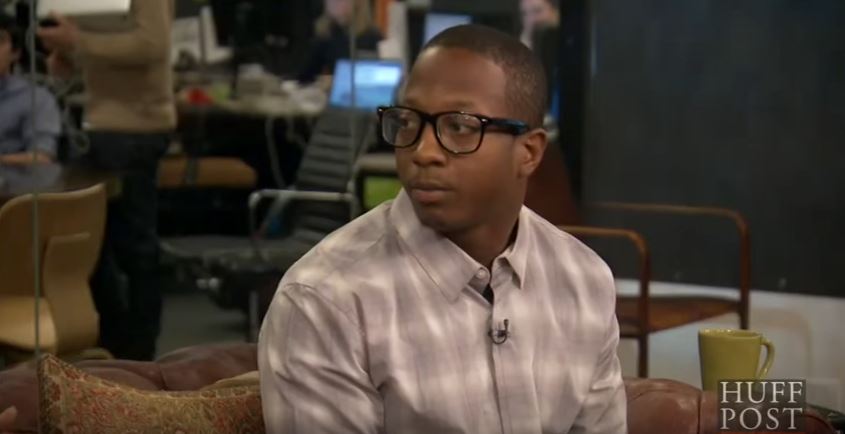Imagine spending 33 months in Riker’s Island for a crime you did not commit. Imagine that your time spent behind bars waiting for a trial was plagued by assault, harassment, and starvation. While that may be just a picture in your head, this actually happened to a 16-year-old kid named Kalief Browder.
Rapper Jay Z teamed up with the Spike channel for a six-part docu-series that shines a light on Browder’s nauseatingly horrific story. How does a teen end up in prison for three years, two of them in solitary confinement, over a stolen backpack? If you’re black, that’s more likely than you might think.
Back in 2010, Browder was just a regular kid returning from a party with a friend. The two were arrested and charged with second-degree robbery after a man named Roberto Bautist accused them of stealing his backpack. While his friend was released, Browder remained behind bars because his mother couldn’t pay the $3,000 bail. As I write that sentence, I can already see the internet trolls quick to place the blame on a poor black mother rather than acknowledge a corrupt criminal justice system that profits from the imprisonment of its predominately poor and black residents in what can best be described as modern-day slavery (see also here, here and here).
In addition to the abuse he suffered at the hands of the prison guards, Browder also endured numerous postponements and 31 hearings in which only plea deals were offered instead of a trial—despite maintaining his innocence. The charge was finally dropped in 2013, but by then, the damage had already been done. You can still see the remnants of the trauma he went through during this Huffington Post Live interview.
Worst of all, Browder was never able to recover from such a horrifying experience. Six months after his release from prison, he attempted suicide. On June 6, 2015, at 22 years of age, he succeeded.
There are no words for how upsetting and physically revolting this entire situation is. For such a young man to go through that and then have it end in tragedy is something I will never ever come to terms with. I can’t imagine what his family, especially his mother, must be going through. Time: The Kalief Browder Story will provide some insight into not only their thoughts, but Browder’s short life as well.
“Kalief Browder is a modern day prophet; his story is a failure of the judicial process,” Jay Z said about the series, according to Ebony. “A young man, and I emphasize young man, who lost his life because of a broken system. His tragedy has brought atrocities to light and now we must confront the issues and events that occurred so other young men can have a chance at justice.”
The series debuted on March 1 and will continue with five additional parts. “Kalief was dealt a horrible hand, his life and his story inspires others. I think it is very clear that solitary confinement for a 16-year-old is inhumane,” the rapper added. “It’s difficult for me to find the words.”
The only semblance of a silver lining, if you can even call it that, is that Browder’s death was not completely in vain. President Barack Obama signed an executive in 2016 that banned solitary confinement for juveniles in federal prisons, in addition to other prison reforms. “In 2013, Kalief was released, having never stood trial,” Obama wrote in an op ed for The Washington Post. “He completed a successful semester at Bronx Community College. But life was a constant struggle to recover from the trauma of being locked up alone for 23 hours a day.”
His is a story that must be heard, must be seen and must be discussed. The next time you hear the phrase “Black Lives Matter,” think of Kalief Browder and remember why it’s important.
(via Ebony, image via screencap)
Want more stories like this? Become a subscriber and support the site!
—The Mary Sue has a strict comment policy that forbids, but is not limited to, personal insults toward anyone, hate speech, and trolling.—
Follow The Mary Sue on Twitter, Facebook, Tumblr, Pinterest, & Google+.









Published: Mar 10, 2017 9:38 PM UTC